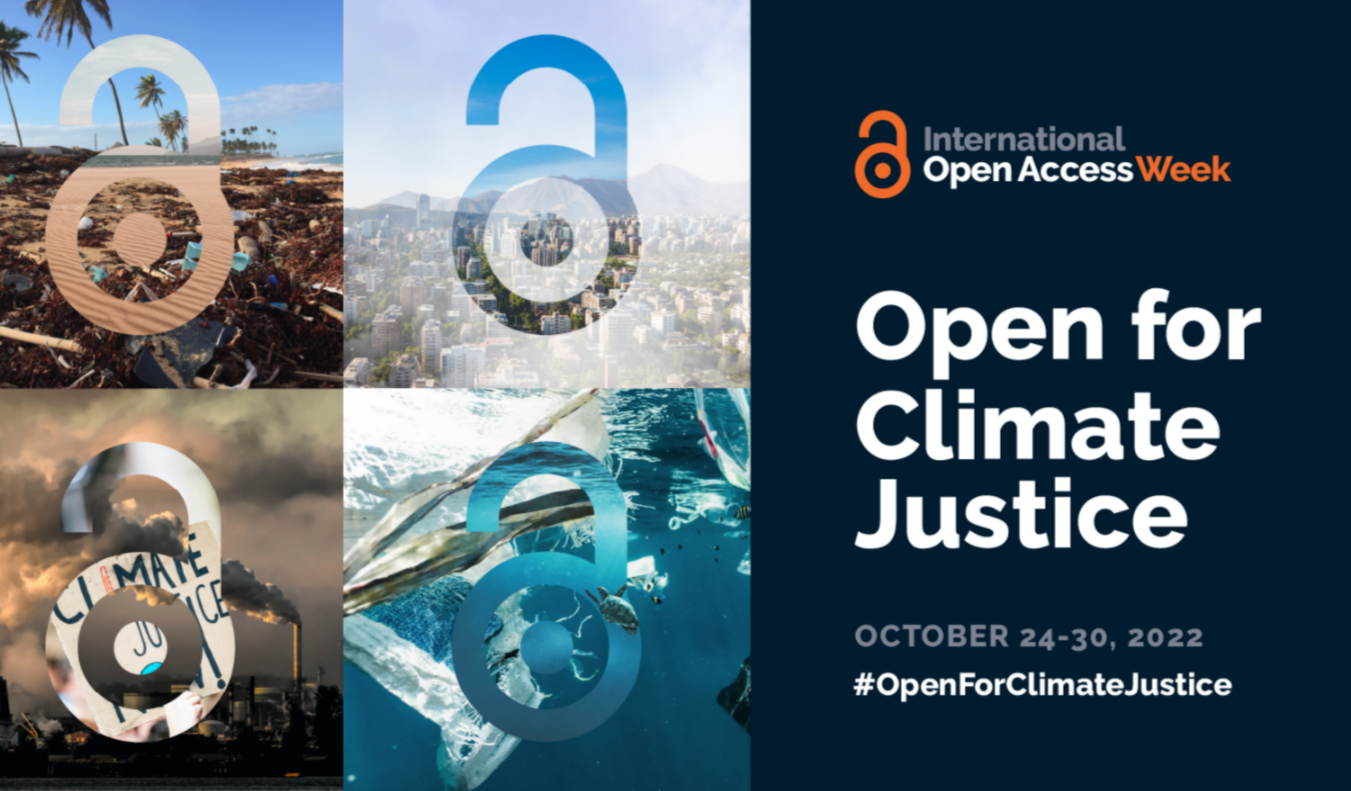Open Access Week 2022
Posted by Aisyah Shamshun on 2022-10-10
This year, the theme for the Open Access Week 2022 which will take place from October 24th to 30th is “Open for Climate Justice”.

What is Open Access?
 The term "open access" refers to the availability of research papers for free and without restrictions. As such, anyone can read open access articles articles online, without having to pay any fees.
The term "open access" refers to the availability of research papers for free and without restrictions. As such, anyone can read open access articles articles online, without having to pay any fees.
Traditional scholarly publishing involves libraries and other institutions purchasing resources for their users. But with open access, readers not only can read articles for free, but open access also increases the speed of scientific discovery and enhances educational experiences. Other benefits of open access include increased visibility, provide access to researchers in developing countries, and higher citation rates.
Open access is categorized by its types based on a colouring system: gold, green, hybrid, bronze, diamond, and black. Essex Student Journal falls into the diamond open-access classification meaning that it is free for authors to publish and free for readers to read.
Climate Justice
The environmental justice movement, though sometimes regarded as a recent phenomenon, has its roots in academic research and activism that began in the United States against environmental racism, racialised pollution, and unequal protection for communities of colour and has since become a global study and battleground (Newell, 2022).
In conjunction with this year’s theme “Open for Climate Justice”, at Essex Student Journal, we have published students’ impressive research related to climate change, community, and sustainability. An essay on “Overcoming the Environmental Collective Action Problem” highlighted that individuals will change their behaviours and act in accordance with environmental policies if they believe that their actions have an impact. Other related publications by our students investigated the importance of having a vibrant civil society to shape democracy that promotes the organization, education, and enrichment of individuals, and understanding the action of individuals from the works of Max Weber. Actions of collective individuals bring tremendous impact to society such as creating grassroots movements including preserving mother nature through climate justice.
As a community, we all carry the shared responsibility to participate and perform our small parts to preserve our environment. As a student and researcher, an example of doing our part in safeguarding nature is reading journal articles online to minimize using printed papers.
How can researchers utilize Open Access?
With the Essex Student Journal being a diamond open access journal, this creates an endless opportunity for students to share their laborious research with the public without any fees. If you plan to execute an in-depth study or write a paper on climate change, sustainability, or the environment, we welcome you to submit it to the Essex Student Journal so, we can learn more on these topics! If you have any other emerging, interesting topics you are currently working or planning to work on, don’t hesitate to submit to the journal by using our simple template.
Additionally, if you would like to learn more about open access, head on to the library webpage here and try one of the fun “Puzzling hunt for Open Access” games or this introduction to open access online tutorial.
References
Borodin, A., (2013) “How the Presence of Vibrant Civil Society Triggers Democratisation”, Essex Student Journal 5(2). doi: https://doi.org/10.5526/esj76
Cunningham, C., (2015) “What did Weber Mean by his View that Sociology Must Start from the Understanding of Individual Action?”, Essex Student Journal 7(1). doi: https://doi.org/10.5526/esj42
Enger, K. R., (2019) “Overcoming the Environmental Collective Action Problem”, Essex Student Journal 10(1). doi: https://doi.org/10.5526/esj10
Newell, P., 2022. Climate justice. The Journal of Peasant Studies, 49(5), pp.915-923
community, climate change, climate justice, sustainability, environment
Back to News List